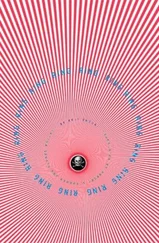Koji Suzuki - Edge
Здесь есть возможность читать онлайн «Koji Suzuki - Edge» весь текст электронной книги совершенно бесплатно (целиком полную версию без сокращений). В некоторых случаях можно слушать аудио, скачать через торрент в формате fb2 и присутствует краткое содержание. Город: New York, Год выпуска: 2012, ISBN: 2012, Издательство: Vertical, Жанр: Ужасы и Мистика, на английском языке. Описание произведения, (предисловие) а так же отзывы посетителей доступны на портале библиотеки ЛибКат.
- Название:Edge
- Автор:
- Издательство:Vertical
- Жанр:
- Год:2012
- Город:New York
- ISBN:978-1-935654-95-7
- Рейтинг книги:4 / 5. Голосов: 1
-
Избранное:Добавить в избранное
- Отзывы:
-
Ваша оценка:
- 80
- 1
- 2
- 3
- 4
- 5
Edge: краткое содержание, описание и аннотация
Предлагаем к чтению аннотацию, описание, краткое содержание или предисловие (зависит от того, что написал сам автор книги «Edge»). Если вы не нашли необходимую информацию о книге — напишите в комментариях, мы постараемся отыскать её.
Edge — читать онлайн бесплатно полную книгу (весь текст) целиком
Ниже представлен текст книги, разбитый по страницам. Система сохранения места последней прочитанной страницы, позволяет с удобством читать онлайн бесплатно книгу «Edge», без необходимости каждый раз заново искать на чём Вы остановились. Поставьте закладку, и сможете в любой момент перейти на страницу, на которой закончили чтение.
Интервал:
Закладка:
“We didn’t ask you to collaborate on this project just to get the key to the Fujimuras’ home.”
Saeko’s cheeks flushed. Her face must have shown her annoyance in the meeting room. She was impressed that Hashiba had picked up on it.
Saeko’s ex-husband had driven her crazy the way he’d always misread her signals. When she was annoyed at some thoughtless comment he’d made, he’d attribute her bad mood to hunger and try to force her to eat. When her eyes suddenly filled with tears, he’d lecture her with hackneyed advice about how she had to “get over the past,” making her ever conscious of how they were somehow always misaligned.
The schism between them never closed. Instead, little incidents piled up until they were so great as to lead to divorce. In the beginning, it was just minor things that had made Saeko think, Somehow he isn’t quite right for me . In fact, Saeko’s ex-husband never once intuited her feelings correctly.
“Did you invite me to coffee just to tell me that?” Saeko smiled warmly so as not to give the impression that she resented the invitation.
“There’s one other thing too. I wanted to explain why the focus of the show turned out the way it did. Don’t think I missed the expression on your face when the producer mentioned bringing a psychic into the Fujimuras’ home. That was a look of scorn, wasn’t it?”
“Of course not!”
“What a typical, obvious, trite, overdone approach. That’s what you were thinking, isn’t it?”
“I wouldn’t put it in those terms, exactly …”
Actually, Hashiba had hit the nail on the head. The moment Producer Oki had begun explaining their plans to bring a psychic into the Fujimuras’ home to intuit their whereabouts, Saeko’s shoulders had slumped at the predictability of it. Was this the kind of project she was going to wind up supporting?
“But that’s what you thought, right?”
“Honestly, it wasn’t what I was expecting.” Saeko held up both palms towards Hashiba and gave him a surprised look. It seemed almost childish of Hashiba to exhibit concern over such a thing, and Saeko found it somewhat endearing. He was playing the long-suffering director forced into creating a hackneyed show.
“Sometimes the most random things end up leading to the concept behind a show. That’s definitely true in this case. Satoyama, Shigeta, and I were having lunch together and someone brought up the topic of the family who’d disappeared in Takato. We were mulling over how confounding it was and what possibly could have caused them to go missing, wondering if there was an idea for a show in there somewhere. As dumb luck would have it, that was when Oki showed up and informed us that Shigeko Torii, the famous psychic, was interested in the case. It was all downhill from there, and the idea rammed right through the planning committee. In other words, the whole project was predicated on Shigeta Torii’s involvement from the start.”
The flow Hashiba described made perfect sense. Besides, what sort of show would Saeko have planned if it had been up to her? They could put together a hard-nosed informational broadcast that simply reviewed the known facts of the case, but it was questionable whether such a show would attract much of an audience. On commercial television, ratings were everything. For a show to work, broadcasters had to use whatever tricks and gimmicks they could to attract viewers. Besides, the Takato disappearance was being characterized as one of the world’s most bizarre mysteries. Perhaps it was inevitable that a psychic was being thrown into the mix for color.
“Please don’t worry. I have no objection to the idea whatsoever. I think it’s going to be an interesting show.”
At Saeko’s kind words, Hashiba’s face crinkled with relief. “You’re pretty interesting yourself,” he remarked, sipping his coffee.
From his tone of voice, it was clear he didn’t mean it as an insult. Still, Saeko wondered what he meant exactly. “How’s that?” she asked, cocking her head to one side.
“The way you talk and the things you say are weird.”
By any standard, it was a rude comment coming from someone Saeko had only met twice. Still, Saeko didn’t feel angry.
“Well, at least you’re honest. What’s so weird about me?” she asked serenely.
“You’re young, but the expressions you use are like an older person’s.”
“How old do you think I am?”
“Your late twenties, I guess.”
“Plus ten.”
At this, Hashiba pulled dramatically back away from the table, then leaned slowly back in, inspecting Saeko from different angles and distances as if trying to reconcile her actual age with how she looked.
“You’ve got to be kidding.”
“I’ll be thirty-six next year.”
“Unbelievable. You’re the same age as me, then.”
Now it was Saeko’s turn to be surprised. She had assumed Hashiba was younger than her.
“We would have been in the same grade in school?” Suddenly, Saeko felt more comfortable with Hashiba. She let the formality melt from her speech.
Hashiba began bringing up epoch-making events from their elementary, junior high, and senior high school years, trying to establish common ground. Saeko played along with the conversation, but inside she was beginning to wonder if Hashiba was married. She found herself imagining what it would be like to be alone in a room with him. For some reason his presence was comforting, and she felt her muscles relax. Maybe it was his robust build that made her feel secure, and she sensed a tough core behind his polite manner. The only thing that bothered her about him was the hint of an immature tendency to play up his abilities. But if that were merely a product of his efforts to make a good almost-first impression on Saeko, she supposed it was forgivable. Welcome, even.
Saeko didn’t explicitly avoid the subject of her schoolgirl years, but she had a vague distaste for discussing that period. As Hashiba began to pick up on Saeko’s lukewarm responses, he shifted the topic of conversation back towards their project.
“It’s being peddled as modern-day kamikakushi —the idea of people being spirited away by angry gods — but it could very well just be a series of coincidences. A cut-and-dry accident of some kind. If somehow the case gets solved before we air the show, that’ll be the end of that.” Hashiba laughed weakly.
But Saeko had a different perspective. “The concept of kamikakushi has existed since olden days in Japan, whenever people have disappeared mysteriously. When someone vanishes in the mountains we attribute it to ogres or the long-nosed demons, tengu . When they disappear near a river we blame it on kappa , water imps. There are various commonalities in the folklore pertaining to supernatural disappearances. For example, kamikakushi most often takes place in the springtime, usually at dusk. Before the disappearance takes place, a strong wind always blows. If the person who is spirited away is lucky enough to return home, he or she never retains any memory of where he or she has been. Naturally, that leads people to concoct all sorts of explanations for the mysterious experiences. The missing person is said to be abducted by a tengu , or tricked by a fox … But in my opinion, most of the time the person disappeared of their own accord or met with some kind of accident. When young brides vanished on the eve of their wedding day, they probably just ran away to avoid marriage. Sometimes the missing are believed to have vanished into some sort of utopia. Take the Taro Urashima folktale, for example.”
Hashiba shifted into the role of the attentive listener, encouraging Saeko here and there with questions as she proceeded to regale him with detailed analyses of everything from world folklore regarding abductions to modern-day group disappearances, as well as specific methodologies pertaining to the pursuit of missing persons.
Читать дальшеИнтервал:
Закладка:
Похожие книги на «Edge»
Представляем Вашему вниманию похожие книги на «Edge» списком для выбора. Мы отобрали схожую по названию и смыслу литературу в надежде предоставить читателям больше вариантов отыскать новые, интересные, ещё непрочитанные произведения.
Обсуждение, отзывы о книге «Edge» и просто собственные мнения читателей. Оставьте ваши комментарии, напишите, что Вы думаете о произведении, его смысле или главных героях. Укажите что конкретно понравилось, а что нет, и почему Вы так считаете.












